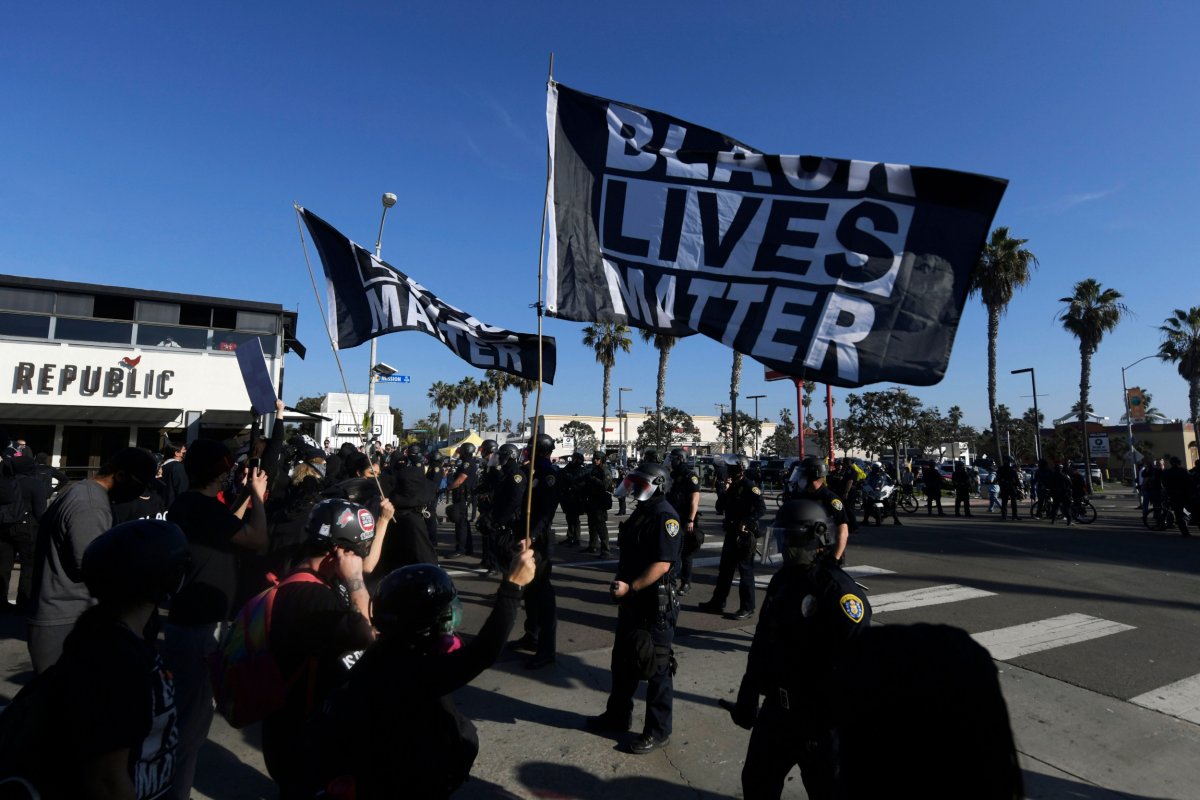Whenever I read about people wounded, traumatized and killed in police encounters, I can imagine myself in their shoes, because they could have been me. What separates me from them is a little more than luck, a matter of being in the right place at the right time. Surely, too, my white skin helped shield me.
In New York City where I live, 15 people experiencing a mental health crisis were killed by police responders in the last five years, more than double the number killed during the prior seven-year period. All but two of the 15 were people of color. This is an ever-worsening, urgent crisis.
Today, I serve as the advocacy coordinator for Community Access, a housing and mental health nonprofit in New York City. I help to lead our broad-based coalition of advocates–Correct Crisis Intervention Today (CCIT-NYC)–working to change how New York City treats people experiencing mental and emotional crises. Right now, with renewed focus on criminal justice reform all across the country, we have a chance to finally achieve a public health solution to this public health problem.
There was a time when my life was vastly different–a time when I had severe mental health concerns that routinely resulted in police encounters. My problems started after law school. Between 1996 and 2001, my mental health deteriorated and steadily worsened. I walked the streets of New York at night, screaming uncontrollably at passersby. I even bought a mouth guard, the kind boxers use, to try to manage my outbursts. It didn't help. I'd just spit it out and keep screaming.
During my last encounter with law enforcement in March 2001, I was surrounded by 11 officers and taken to the hospital in New York City. With my mother's support, I found treatment that worked for me. I found resources like Rainbow Heights where I got connected with others living with mental health concerns. I later found Community Access' Howie the Harp Advocacy Center which helped me obtain a part-time job helping people recover from emotional impacts of 9/11. These resources helped me rebuild my life, regain my law license, buy a co-op and forge a new career as the advocate and organizer I am today. I am now what we in the field call a "peer," someone with firsthand experience of the mental health system whose expertise helps inform others' work.
This, I feel, is what we all want: The ability to heal, the chance to begin again and to be valued, not shunned, for our unique, lived experiences. Too many people are denied that chance. Too many are injured or killed during their moments of greatest need. Too many are cycled in and out of a traumatizing criminal justice system and unnecessary and unhelpful hospitalizations.
The police encounters predominantly experienced by Black and Latino New Yorkers in emotional or mental distress is a stark reminder that broken systems reflect societal biases and affect our communities disproportionately. Some of these New Yorkers garnered headlines while others largely escaped public notice. But what they all had in common was this: During one of the worst moments of their lives–a mental health crisis–they were met with weapons of a law enforcement response, rather than health care workers able and wanting to help.
It's time for change. For people in crisis, we need appropriate alternatives to law enforcement responses.
Our country is living through a moment of reckoning. Racism and injustices in our criminal system, too long ignored, are finally getting the attention they deserve. For those of us who have long advocated for systemic reform, it is one of those rare moments where deep, lasting change feels finally within reach.

A June 2020 survey by Data for Progress found that 68 percent of American voters support the creation of a new, non-police first responder agency to answer mental health calls. This support cuts across racial and partisan lines, with huge majorities of Republicans, Democrats, white and Black voters all supporting this essential change.
Our coalition is calling for reforms along these lines and modeled after similar efforts emerging from other cities throughout the country. We are calling for the reallocation of NYPD funding to support non-police teams that will handle mental health crisis response. These teams would consist of Emergency Medical Technicians (EMTs) paired with trained mental health "peers" (people like me, with lived experience) to serve as first responders for people experiencing a mental health crisis. With their person-centered approach and capacity for de-escalation, these teams would be uniquely suited to connect people to community-based support that can help them rebuild and remain safe.
Does this proposal sound too idealistic? The city of Eugene, Ore. has successfully used such a model for 30 years. Today, this approach is gradually being embraced by bigger cities like San Francisco, Los Angeles, Denver, Toronto, Portland and others.
No single proposal will correct years of injustice, socio-economic disparities and a deeply flawed health care system. There is more to do, at all levels of society, to uphold the human rights and dignity of all people, including those living with mental health concerns. But we should be heartened by the progress we've accomplished so far. Our advocacy efforts are working and have been further buoyed by the extraordinary Black Lives Matter movement. We have a chance to fundamentally transform the way society treats people in crisis. We can not only save lives but set more of our fellow citizens on the road to the lives they deserve.
Carla Rabinowitz is the advocacy coordinator at Community Access and the project coordinator for the Correct Crisis Intervention Today in NYC (CCIT-NYC) Coalition.
The views expressed in this article are the writer's own.
Uncommon Knowledge
Newsweek is committed to challenging conventional wisdom and finding connections in the search for common ground.
Newsweek is committed to challenging conventional wisdom and finding connections in the search for common ground.
About the writer
To read how Newsweek uses AI as a newsroom tool, Click here.








